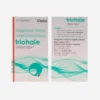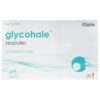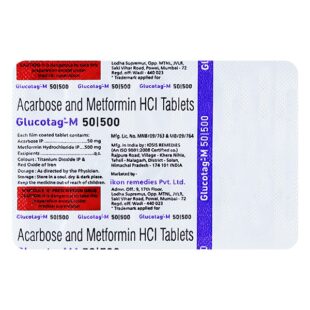- Your cart is empty
- Continue Shopping
Triohale Inhaler
Ciclesonide, Formoterol, Tiotropium
₹1,132.01
Uses of Triohale Inhaler
- Chronic obstructive pulmonary disease (COPD)
Add to cart
Buy Now
Introduction to Triohale Inhaler
Triohale Inhaler is used for the treatment of chronic obstructive pulmonary disorder (a lung disorder in which the flow of air to the lungs is blocked). It helps in relaxing the muscles of the air passages and making it easier to breathe. It relieves coughing, wheezing and feeling short of breath.
Your doctor will tell you how often you need to use your inhaler. The effect of this medicine may be noticeable after a few days but will only reach its maximum after a few weeks. This medicine must be used regularly to be effective, so go on taking it even if you don’t have any symptoms. That means it’s doing its job. If you stop taking it your COPD may get worse. This medicine should not be used to relieve sudden shortness of breath. If sudden shortness of breath occurs, use your rescue inhaler. To get the benefit from this medicine you need to make sure you get your inhaler technique right, otherwise, it Does not work as well.The most common side effects are nausea, vomiting, dryness in the mouth, fungal infection of mouth, respiratory tract infection, bronchitis (inflammation of the airways), cough, sore throat, hoarseness of voice, and headache. If you get there, don’t stop taking it but do talk to your doctor. You can prevent some of these symptoms by rinsing your mouth and throat with water or brushing your teeth after using your inhaler. There are other, rarer side effects which can be serious. Talk to your doctor if you’re worried about them.
Your doctor will tell you how often you need to use your inhaler. The effect of this medicine may be noticeable after a few days but will only reach its maximum after a few weeks. This medicine must be used regularly to be effective, so go on taking it even if you don’t have any symptoms. That means it’s doing its job. If you stop taking it your COPD may get worse. This medicine should not be used to relieve sudden shortness of breath. If sudden shortness of breath occurs, use your rescue inhaler. To get the benefit from this medicine you need to make sure you get your inhaler technique right, otherwise, it Does not work as well.The most common side effects are nausea, vomiting, dryness in the mouth, fungal infection of mouth, respiratory tract infection, bronchitis (inflammation of the airways), cough, sore throat, hoarseness of voice, and headache. If you get there, don’t stop taking it but do talk to your doctor. You can prevent some of these symptoms by rinsing your mouth and throat with water or brushing your teeth after using your inhaler. There are other, rarer side effects which can be serious. Talk to your doctor if you’re worried about them.
Side effects of Triohale Inhaler
Most side effects do not require any medical attention and disappear as your body adjusts to the medicine. Consult your doctor if they persist or if you’re worried about them
Common side effects of Triohale
- Cough
- Headache
- Dryness in mouth
- Urinary retention
- Constipation
- Dry throat
- Increased heart rate
- Blurred vision
- Nasopharyngitis (inflammation of the throat and nasal passages)
- Sinus inflammation
- Stomach discomfort
- Fungal infection of oropharynx
- Tremors
- Palpitations
- Voice change
- Dizziness
- Insomnia (difficulty in sleeping)
- Taste change
How to use Triohale Inhaler
Check the label for directions before use. Shake the inhaler. While you are breathing in from mouth, press down on the inhaler one time to release the medication and hold your breath for 10 seconds. Repeat until you have inhaled the number of puffs as suggested by the doctor.Afterwards, rinse your mouth thoroughly with water and spit it out.
How Triohale Inhaler works
Ciclesonide, formoterol and tiotropium. Ciclesonide is a corticosteroid. It acts by stopping the release of certain natural substances in body that are responsible for inflammation of the airways. Formoterol is a bronchodilator, while tiotropium is an anticholinergic. They work by relaxing the muscles in the airways and widen the airways. Together, they make breathing easier.
Safety advice
Alcohol
Unsafe
It is unsafe to consume alcohol with Triohale .
Pregnancy
Consult your doctor
Triohale may be unsafe to use during pregnancy. Although there are limited studies in humans, animal studies have shown harmful effects on the developing baby. Your doctor will weigh the benefits and any potential risks before prescribing it to you.
Breast feeding
Consult your doctor
Triohale is probably safe to use during breastfeeding. Limited human data suggests that the drug does not represent any significant risk to the baby.
Monitor the baby for dry mouth, constipation, and urinary problems.
Monitor the baby for dry mouth, constipation, and urinary problems.
Driving
Consult your doctor
No interaction found/established
Kidney
Consult your doctor
No interaction found/established
Liver
Consult your doctor
No interaction found/established








Reviews
There are no reviews yet.